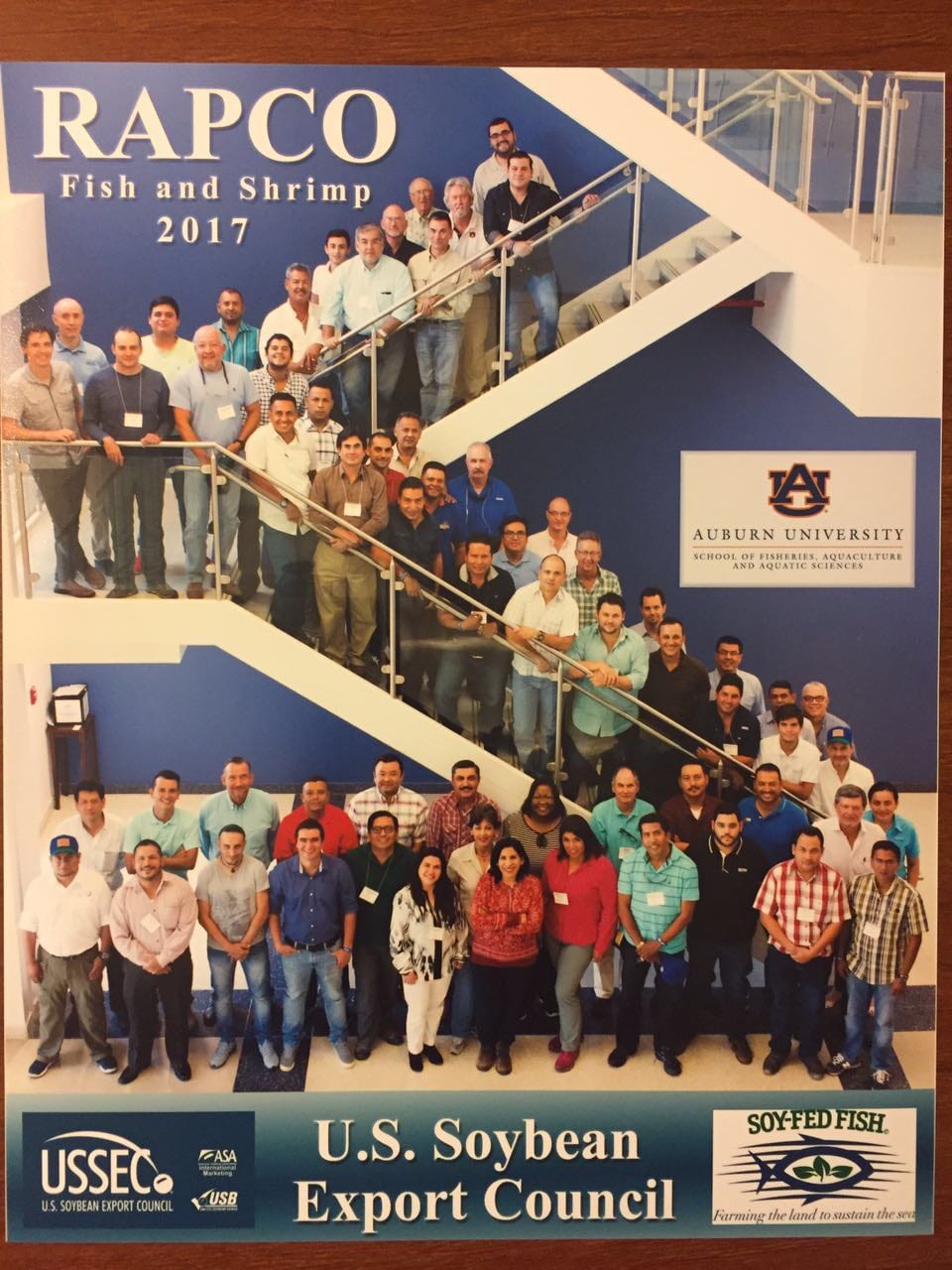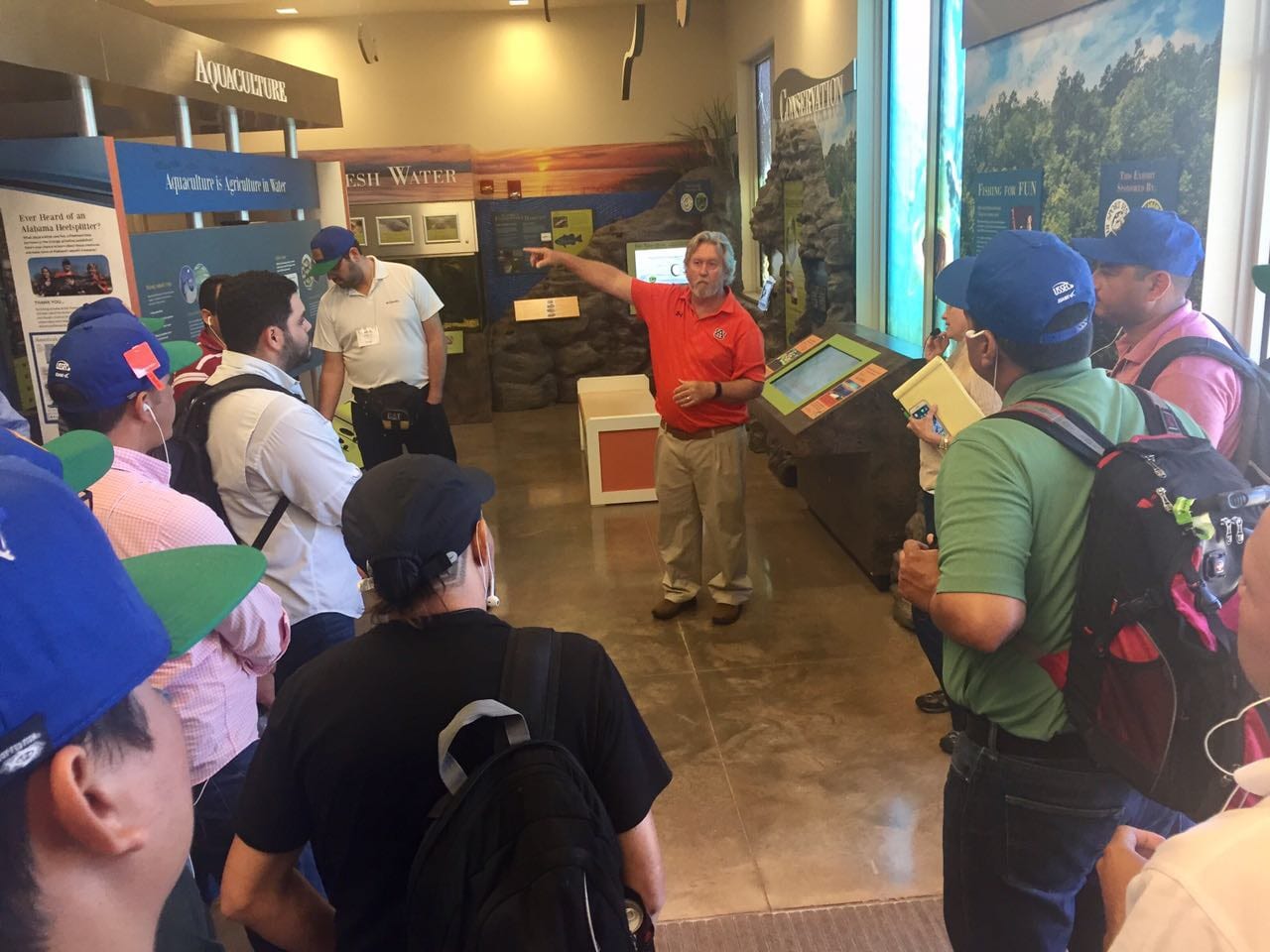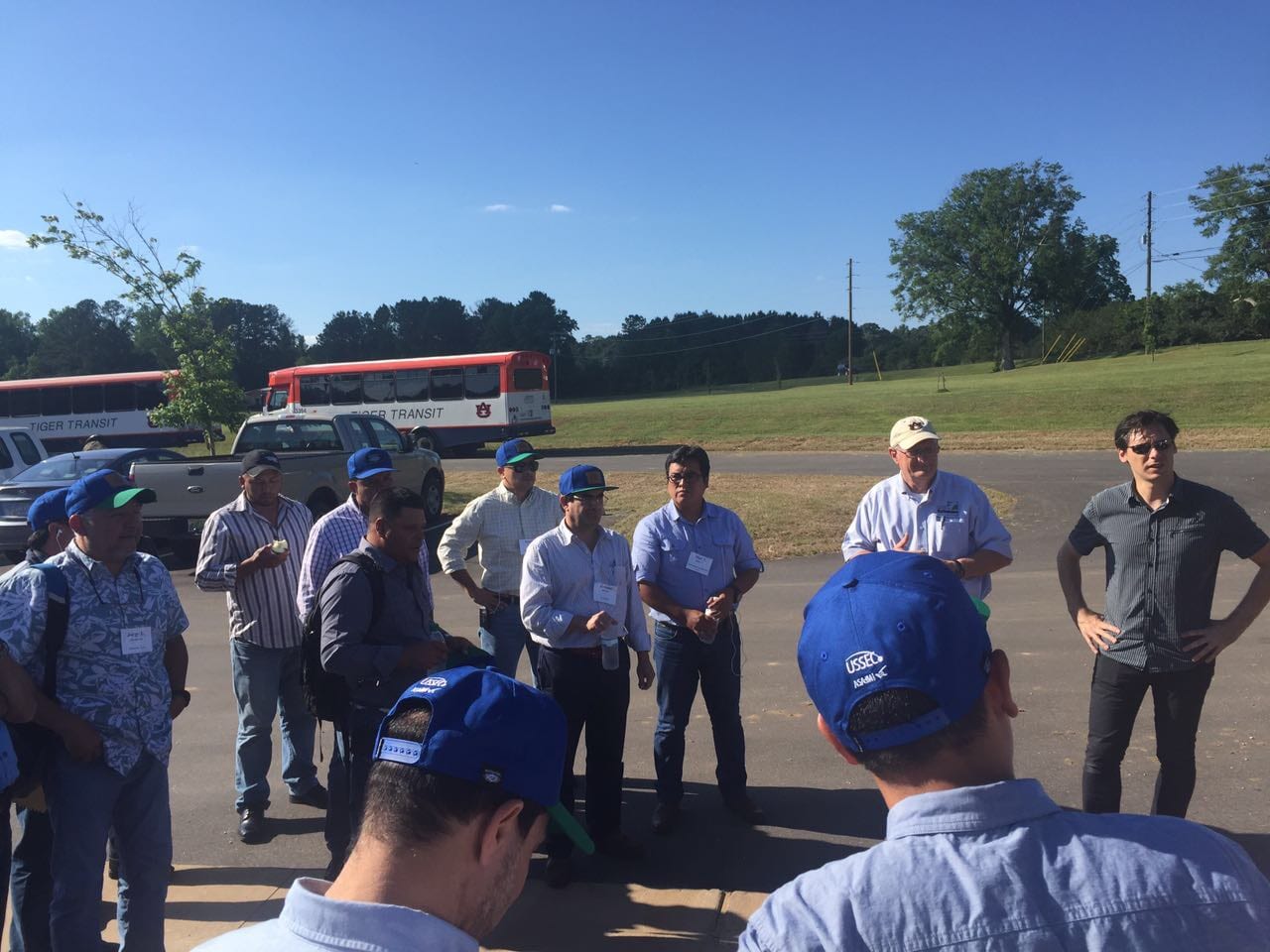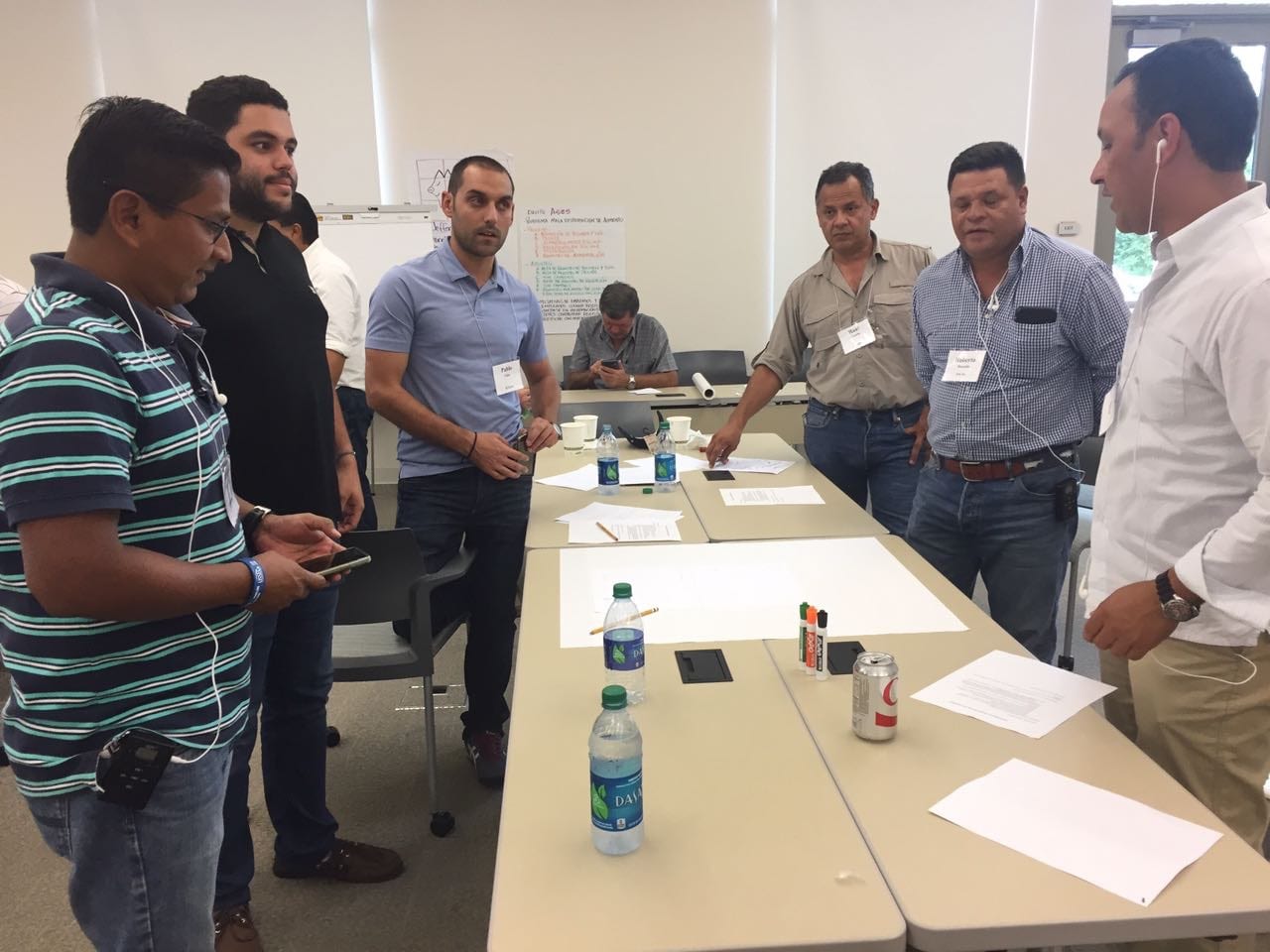USSEC and Auburn University Host 2017 Americas Aquaculture Technical Training (RAPCO)
- Category:
- Aquaculture
- General News

USSEC and Auburn University hosted the 2017 Americas Aquaculture Technical Training (RAPCO) in Auburn, Alabama. 65 aqua industry participants (aqua producers, feed companies, government, and technicians) received the specialized training May 15 – 18. The course included participants in both the fish and shrimp markets. The information was effectively communicated to the attendees through hands-on training and education provided by leading technical teams, nutritionists, and feed specialists in the aquaculture field.


The first day’s agenda focused on status, issues, and trends in global aquaculture production. USSEC aquaculture consultant – Americas Jairo Amezquita welcomed the attendees and gave a summary of the event over the course of the three days and an overview of the U.S. Soy aquaculture program. Darryl E. Jory spoke about global aquaculture markets and status, issues, and trends. C. E. Boyd is a pioneer in designing the world’s most efficient pond aerators. His designs were twice as efficient as any aerator in use at the time and his research has helped people understand how to better manage their water, facilitating worldwide aquaculture advancement. USSEC consultant John Hargreaves presented on the research and development on partitioned ponds in the U.S. and their potential application to fish and shrimp farming. Jesse Chappell, professor at Auburn University and creator of the Intensive Pond Aquaculture (IPA) technology, provided updates on new implantations, Southeast Asia (SEA), and upcoming installations in the Americas region.

Luke Roy wrapped up the day’s presentations with an update on developments in new aquaculture technologies.
After all of the presentations were over, Allen Davis and Jesse Chappell provided tours of their research facilities and ponds.




Day two focused on fish and shrimp nutrition, practical diets, feed management, and diseases. This session was very interactive and participants were able to learn about the needs specific to their farms or mills.

The third day was comprised of aquaculture certification system details, quality control for feed ingredients and feed, determining the load capacity in aquaculture; controlling diseases; microbial floc systems; water quality problems and solutions; and harvesting and post-harvesting management.

Day four wrapped up with an introduction to lean manufacturing and lean manufacturing exercises. Lean manufacturing is a systematic method for the elimination of waste within a manufacturing system. Lean makes obvious what adds value by reducing everything else that does not.


USSEC would like to give special thanks to the Nebraska and Indiana QSSBs who sponsored this project. The continued support of this course is extremely important to the industry due to new technologies emerging, strains, issues, and trends.